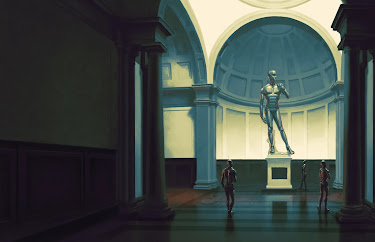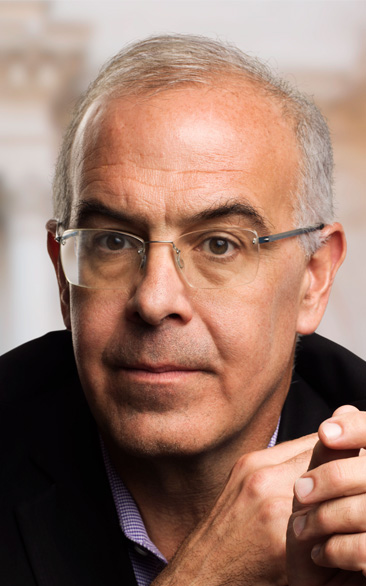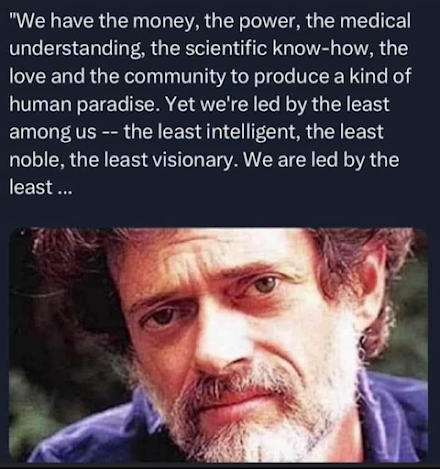I believe that Hannah Arendt (pictured above) would likely agree with me that the "Holocaust," the systematic murder of some six million Jews between 1941 and 1945, is a demonstration, a "proof," if you will, that "anything is possible" in that "Human World" that we ourselves create.
If "anything is possible" (as I am fond of claiming in my postings to this blog) then it follows that we can "make our dreams come true." That was my father's claim, made to me frequently as I was growing up. Eventually, I came to agree that my father was right.
My whole understanding of "reality," associated with my father's continuing assertion that "anything is possible," is that we live, most immediately, in a "Human World," or a "Political World," as I call it, in which we decide, through our individual and collective choices and actions, what will happen, what we will create.
Ultimately, of course, we don't live in that "Human World," but in the "World of Nature," or the "World That God Created." We did not create the "World of Nature," and it is to that "World" that we are ultimately accountable. That is exactly what a popular saying is trying to get at, when it tells us that "Nature Bats Last." We must accommodate our actions in the "Human World" to conform to the requirements of the "Natural World." Any long continuing failure to do so will lead to our extinction.
If this statement brings global warming to mind, or makes you think about the destruction of the natural environment, practically everywhere, you can give yourself an "A" on this test of your understanding of my claims about the nature of "reality."
Well, so much for a quick recapitulation of my "Two Worlds Hypothesis." I continue to argue that we must understand the important difference between these "Two Worlds," both of which we inhabit, simultaneously. One important difference between them is the fact that there are two different kinds of "Law" within the two different worlds - and this is true despite the use of the same word for these two very distinct kinds of "law." The laws that govern the world that we create, the "Human World," are derived from the "equation," as I call it, that follows:
Politics > Law > Government
Our political choices (and "politics" is, above all, based in the realm of "freedom") generate those "Laws" that direct and govern our activity in the "Human World." Such human "Laws" are nothing other than the statements we provide for ourselves, outlining what we want to do and what we think we should do; they are a set of instructions, which we can either follow, or not. The "Laws" that apply in the "World of Nature," on the other hand, are like the "Law of Gravity." These "Laws of Nature" tell us what must and will happen, in any particular circumstance. Those "Laws of Nature," in other words, define a world of "necessity," not a realm of "freedom."
Let's return to my father's claim that "anything is possible," and get back to Hannah Arendt, too. This claim that "anything is possible" is made about the "Human World," not the "World of Nature." But just think about the implications!
Because "anything" does, literally, mean any thing, we must always be aware that we can make "nightmares" come alive, too, not just our "dreams."
I think it is probably true that it was only the Holocaust that made this fact so clear that we could no longer avoid facing it. The scale of the evil evident in the Holocaust (followed, rather promptly, by the United States' use of the new "atomic bomb" on Hiroshima and Nagasaki) provides us with a clear vision of what it really means to say that we can do "anything." We can do horrible things, as well as wonderful things. "Dreams" can be made to come true. "Nightmares," likewise.
What has launched me off on this recapitulation of what I think is an important way to understand our human situation is an article published rather recently by Aeon. The article is titled, "When hope is a hindrance," and I don't think it's blockaded by any protective paywall. Thus, let me suggest that you click the link and read it.
The point of the article, which references Hannah Arendt, and her thoughts about "Hope," is that "Hope" is an activity that, implicitly, has us thinking about what "might be," thus comforting ourselves that maybe something "good," not "bad" will come out of the confused terrain of whatever current reality we confront.
In fact, the author of the article, Samantha Rose Hill, suggests that Arendt prized "action," not "hope."
Why is "action" so important?
Action is important because we create the "Human World" in which we most immediately reside. We do so both individuallty and collectively, but above all "collectively," and we do so as we take "action" that changes whatever exists now into something else - something that we bring into being by the action we take.
Let's not sit around "hoping" that things will "work out." We can do "anything," but it is what we do, the actions we take, not the thoughts we have, that determines the shape of the world in which we will live.
And what is that activity that, "collectively," can reformulate reality in the "Human World?"
Let's call it "Politics," shall we? You know, like .... We Live In A Political World!

















.jpg)